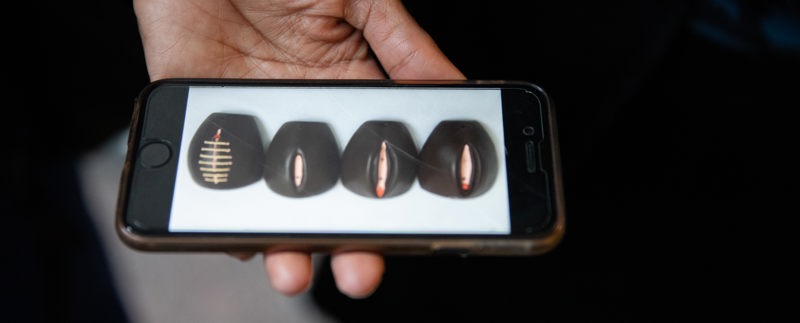Female genital mutilation (FGM)
Female genital mutilation (FGM) is a custom that is carried out to control girls' and women's bodies and their sexuality. Among other things, the abuse has to do with the notion that men's and families 'honor is linked to girls' and women's reputation and sexuality. In some countries, for example, it can be difficult for a girl to get married if she has not undergone female genital mutilation.

More than 200 million girls and women alive today have suffered female genital mutilation.
UNICEF estimates that more than 200 million girls and women around the world have been subjected to some form of genital mutilation. Over 40 million of these are girls under the age of 15.
FGM is a very old custom and tradition with no connection to any particular religion. It occurs in Christian and Muslim groups in several countries in Africa, in some countries in the Middle East and in Asia.
Girls are most often subjected to genital mutilation between the ages of 4 and 14, but genital mutilation also occurs in younger children and can also be repeated several times later in life.
Four forms of Female Genital Mutilation (FGM)
Female genital mutilation (FGM) means that larger or smaller parts of the external female genitalia are removed or damaged. There are different forms of FGM. According to the WHO, they are classified into four different types:
- The foreskin of the clitoris is cut off. Sometimes the clitoris, or parts of the clitoris, are also cut off.
- The entire clitoris is cut off, along with all or part of the inner labia.
- All external parts of the genitals, i.e. the clitoris and inner and outer labia are cut off. Then what is left of the outer labia is sewn together so that the vaginal opening is covered. A small gap is left for urine and menstrual blood to seep out. Also called infibulation.
- Other harmful procedures such as tingling (jabbing of the clitoris with a sharp object), cutting, scraping or burning of the clitoris and surrounding tissue.
Genital mutilation is an old custom with no connection to any particular religion.
Female Genital Mutilation (FGM) in Sweden
Female genital mutilation (FGM) is a violation of Swedish law as well as human rights. All types of genital mutilation of girls and women have been banned in Sweden since 1982.
According to the National Board of Health and Welfare's survey from 2015, it was estimated that approximately 38,000 girls and women in Sweden live with the consequences of FGM, of which approximately 7,000 are girls under 18 years of age. However, the unofficial number is believed to be larger and among those who are active in the issue, new surveys are expected to show significantly higher figures.
The largest groups of girls and women in Sweden who have been subjected to FGM come mainly from countries such as Somalia, Egypt, Ethiopia, Eritrea and Gambia.
A report from the National Board of Health and Welfare on the care of FGM (2020) states that approximately 5,000 women diagnosed with FGM have sought care in specialist or obstetric care in Sweden from 2012 to 2018. 97 percent of women originally come from an African country and 87 percent are between 18 and 39 years old. In 2018, 52 girls with FGM, aged 0 to 17, sought care and received a diagnosis. There are about 10 girls born in Sweden who sought care and received a diagnosis linked to FGM during the years 2012 to 2018.
Medical facts
For many women, genital mutilation has medical consequences in both the short and long term. Immediate effects are bleeding, infections, damage to nearby organs, shock and, in the worst case, death. In the long term, it can be about abdominal pain, cysts, difficulty urinating, menstrual blood clots in the vagina, pain during intercourse and complications in connection with pregnancy and childbirth.
Girls and women who have been genitally mutilated can be traumatized and suffer from various forms of psychosocial factors. Some girls and women may feel depressed or unwell. Memories of the procedure may remain, even if it happened far back in time. Some girls and women may become depressed, perhaps depressed without understanding that it may be due to the actual genital mutilation. Some girls and women do not know, or may not remember, that they have been mutilated.
Consequences of female genital mutilation (FGM)
Genital mutilation can be harmful both physically and mentally. Girls and women who are subjected to it can suffer from the following problems immediately or later in life:
- Heavy bleeding during the procedure
- Infections
- Abdominal pain
- Difficulty urinating
- Difficulties with menstruation
- Mental disorders such as PTSD or depression
- Physical and mental pain during intercourse
- Injuries that risk not being able to get pregnant
- Childbirth complications
- Death
Publication date: 9 June 2021
Last updated: 13 June 2024

